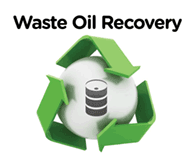Researchers at the non-profit institute have been working to develop a cover crop mulch system in which herbicides are not necessary for weed suppression, furthering the work of making cover crop mulch a viable option for organic as well as conventional vegetable producers..
While there has been great headway in developing and demonstrating the efficacy of cover crop mulch systems, most of the systems that have been developed rely to some degree on synthetic herbicides to supplement the weed control provided by the cover crops. For this reason, Rodale Institute researchers have been working to develop a cover crop mulch system in which herbicides are not necessary for weed suppression, furthering the work of making cover crop mulch a viable option for organic as well as conventional vegetable producers.
The goal of the study was to measure the impacts of these different mulch systems on soil quality and fertility, weed control, yields and waste production, and profitability for small to mid-size vegetable operations. The vegetable trials at Rodale Institute compared cover crop nitrogen, potential carbon contribution, weed suppression, yields and soil health between rolled and mowed vetch and rye cover crops as well as commonly used black plastic. At the four collaborating farms in Pennsylvania and New Jersey, each farmer tested one cover crop system with the standard system.
The cover crop systems provided serviceable weed control, added more biomass to the soil, contributed nutrients, and increased soil moisture and percent total soil carbon. Although marketable yields were lower, on average, some of the cover crop systems achieved higher profits across the three years.
The cover crop mulch systems eliminated 91.5 lb of plastic waste per acre. Challenges related to extreme weather conditions and late blight meant results were more variable than anticipated, but all of the partner growers report that they continue to use what they’ve learned from the project to reduce their reliance on black plastic. Some of reported benefits partner growers experienced include discovering a method for more effective cover crop kill, substantial cost savings and new ways to use cover crops between rows for ecosystem benefits. One partner has already cut his black plastic use in half and hopes to expand even further.
Rodale Institute has published Beyond Black Plastic, a 24-page guide that looks beyond plasticulture and evaluates the effects of different mulch systems on soil quality and fertility, weed control, yields, and waste production, as well as profitability for small to mid-size vegetable farms
The Northeast Sustainable Agriculture Research and Education Program provided Rodale Institute with funding for a three-year vegetable trial focusing on cover crop alternatives to petroleum-derived disposable black plastic mulch.



 Classifieds
Classifieds



